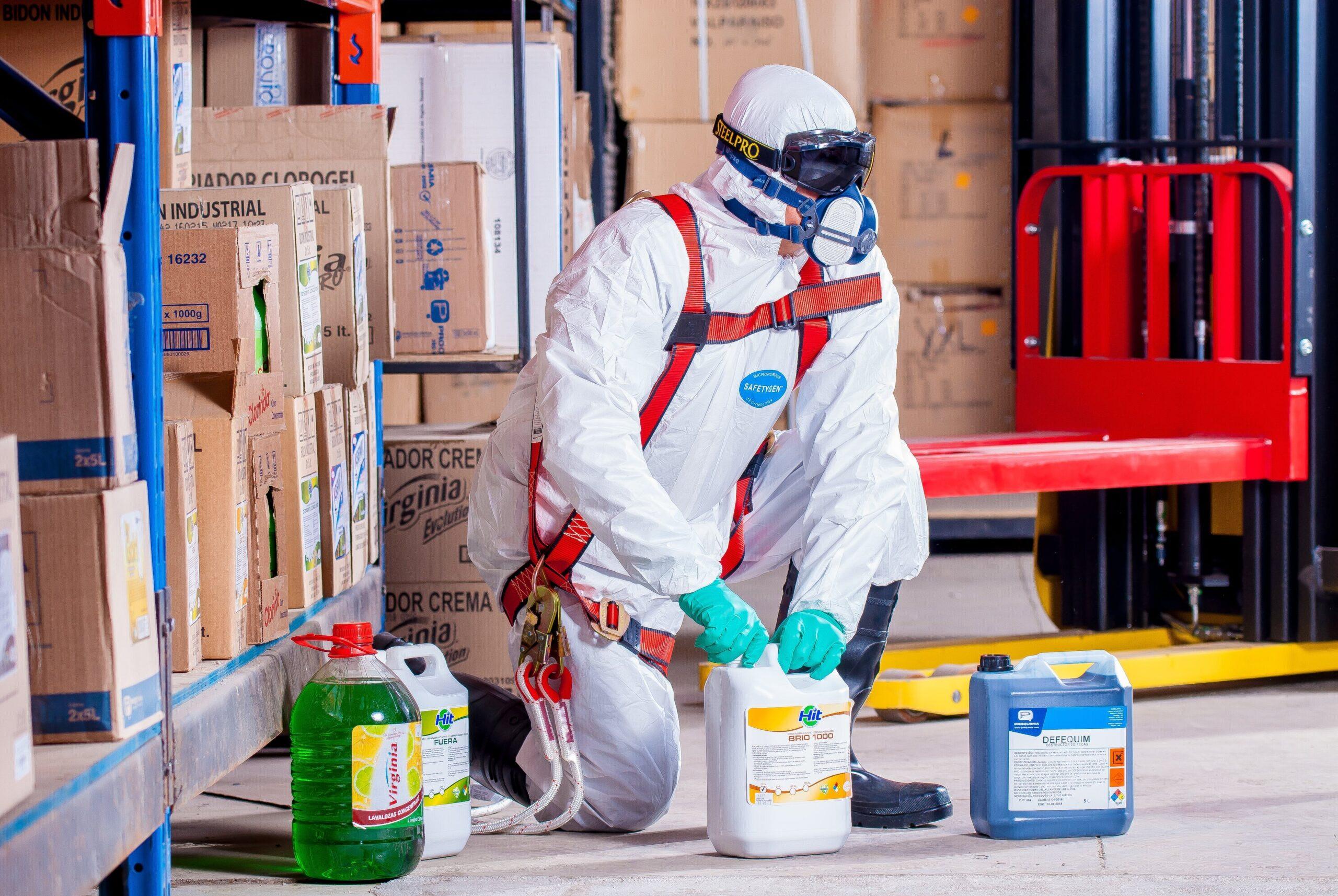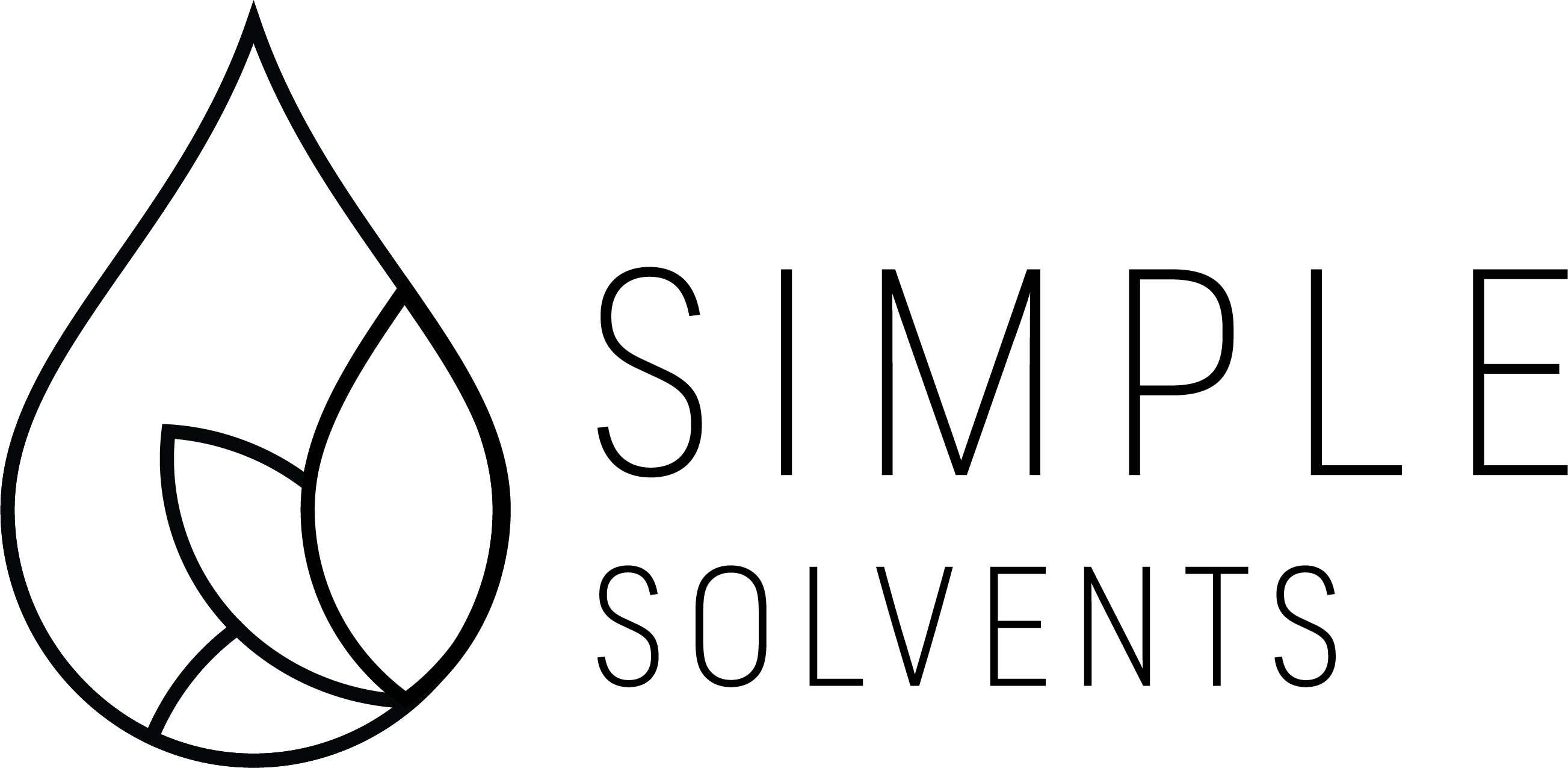A Comprehensive Guide to Solvent Disposal: Best Practices and Regulations

A Comprehensive Guide to Solvent Disposal: Best Practices and Regulations
The importance of proper solvent disposal cannot be overstated, and in this guide to solvent disposal, we will walk through the dos and don’ts. Ensuring that solvents are disposed of safely and in compliance with environmental regulations is a legal requirement and a responsibility we share in protecting our environmental health safety and the health of those who come into contact with these chemicals.
As a provider of pharmaceutical-grade solvents, Simple Solvents is dedicated to promoting safe and responsible handling of our products from start to finish. This comprehensive guide will equip you with the knowledge to follow the best practices and regulations in solvent disposal for your business or personal projects, minimizing your environmental impact and ensuring compliance with the guidelines.
Disposing of solvents can be a complex and challenging task, but with the right insight and understanding of applicable regulations, it is possible to prevent harm to the environment, protect the health and safety of workers, and avoid potentially costly fines or legal complications. Key aspects of solvent disposal include proper storage and segregation of waste, knowledge of local, state, and federal regulations, appropriate disposal methods, and accurate record-keeping. Recognizing that every situation is unique, developing a disposal plan tailored to your specific circumstances is essential.
By the end of this guide to solvent disposal, you will have a solid understanding of the critical components of solvent disposal, enabling you to make informed and responsible decisions that protect the environment, your workers, and your business or personal interests. Together, we can foster a culture of safety and responsibility in the handling and disposal of solvents, contributing to a healthier, cleaner, and more sustainable future. That’s why Simple Solvents created this guide.
1. Sort, Segregate, and Store Waste Solvents
The first step in responsible solvent disposal is proper waste sorting, segregation, and storage. Implement these measures to keep your workspace organized, avoid accidental mixing of incompatible chemicals, and preserve the environment:
- Identify and classify waste solvents: Determine the types and characteristics of solvents you are managing, which will inform handling, recyclability, and compatibility with other substances.
- Segregate incompatible solvents: Keep solvents with divergent chemical properties separate, as some can react dangerously when mixed, causing fires, explosions, or hazardous fumes.
- Label waste containers: Clearly label containers to indicate the type of waste contained, any relevant hazards, and the disposal or recycling requirements. This practice ensures proper waste handling and reduces the risk of accidents.
- Store waste securely: Place waste solvents in appropriate containers with tight-fitting lids and store them in a well-ventilated area, away from ignition sources or excessive heat.
2. Understand and Adhere to Regulations
Awareness and adherence to local, state, and federal regulations are vital to maintaining compliance and avoiding potential fines or legal challenges. Consider the following steps to help ensure your solvent disposal practices meet the necessary guidelines:
- Research pertinent regulations: Identify federal, state, and local regulations that apply to your solvent waste disposal procedures. These regulations may vary depending on the type of solvents, industry, or geographic location.
- Implementing compliance measures: Based on your research, make necessary adjustments to your waste handling and disposal practices to remain compliant with regulations.
- Stay up-to-date: Regulatory requirements may change over time. Stay informed and review updates regularly to ensure continued compliance.
3. Select a Suitable Disposal Method
Choosing the appropriate disposal method for your solvents is crucial for maintaining safety, protecting the environment, and upholding compliance. Some common disposal methods include:
- Recycling and reclamation: Many solvents can be recycled or reclaimed, reducing waste and associated costs. Investigate if your waste solvents can be purified and reused or if they can be repurposed for another application.
- Incineration: High-temperature incineration is used for solvents that cannot be recycled. This process relies on specialized facilities that destroy the waste while adhering to strict emissions standards, effectively neutralizing hazardous components.
- Treatment and disposal: Some waste solvents may be rendered safe through treatment processes, allowing disposal at approved hazardous waste disposal facilities or landfills. Always verify that your waste qualifies for this method before proceeding.
- Partner with a waste disposal provider: An accredited, experienced waste disposal provider can assist with solvent disposal, ensuring compliance, safety, and reduced environmental impact.
4. Maintain Proper Documentation and Record-Keeping
Documenting your solvent disposal practices is essential for regulatory compliance and shows that proper methods have been followed. Maintain detailed records for every disposal process:
- Inventory lists: Document the types and quantities of solvents stored and their storage locations.
- Disposal procedures: Keep records of all disposal methods, including recycling, incineration, or landfilling.
- Hazardous waste manifests: Ensure that all waste shipments are accompanied by a hazardous waste manifest, which includes critical information on the waste’s source, type, and destination.
- Compliance documentation: Retain a copy of all permits, licenses, and other regulatory documents related to solvent disposal.
Conclusion
This guide to solvent disposal is an essential aspect of responsible chemical management. By following proper procedures and regulations, you can protect the environment, ensure safety, meet compliance standards, and support a more sustainable future.
At Simple Solvents, we’re committed to providing the necessary guide to solvent disposal and high-quality solvents, enabling you to make informed decisions and contribute to an environmentally responsible canvas. Together, let’s continue to foster safety and responsibility in the handling and disposal of solvents, creating a cleaner, healthier, and better future for all.
